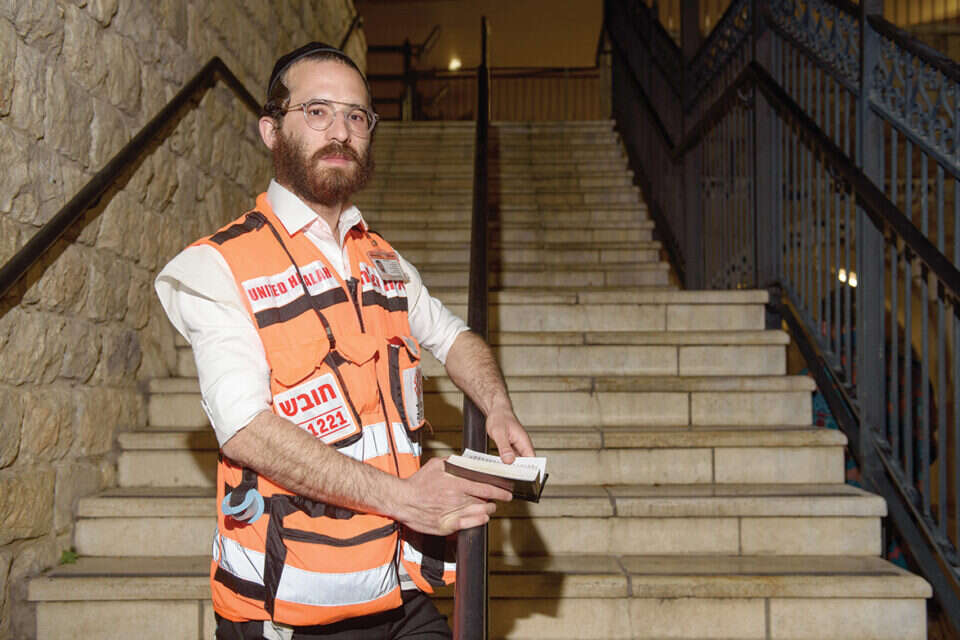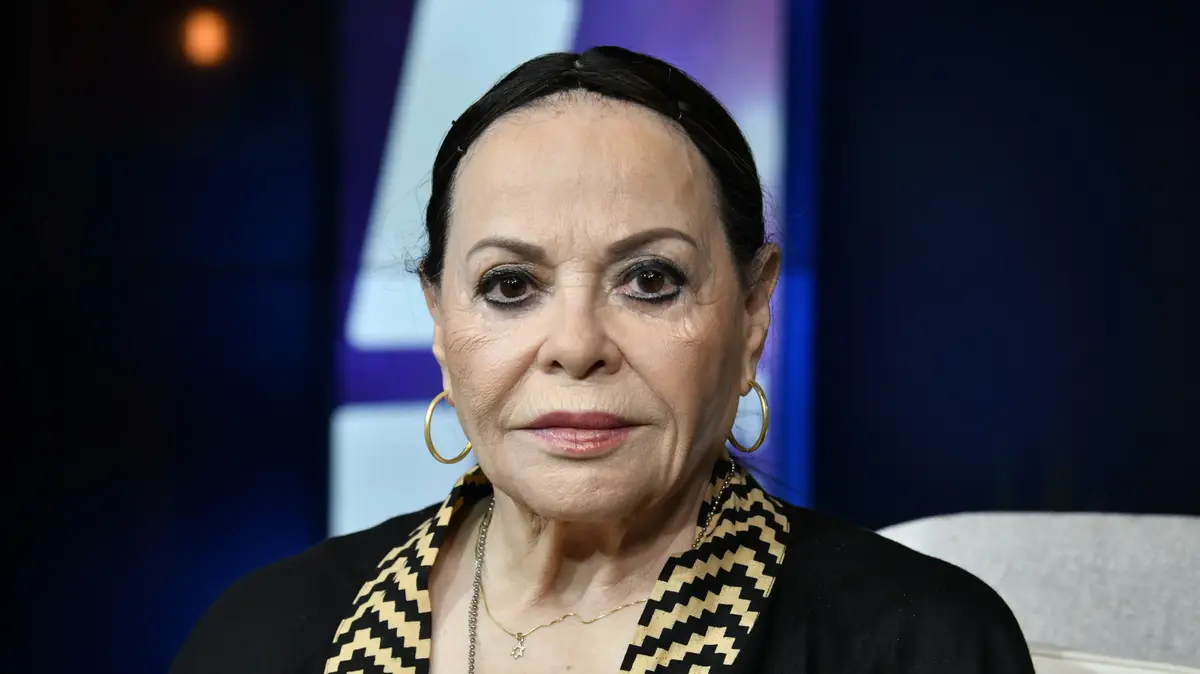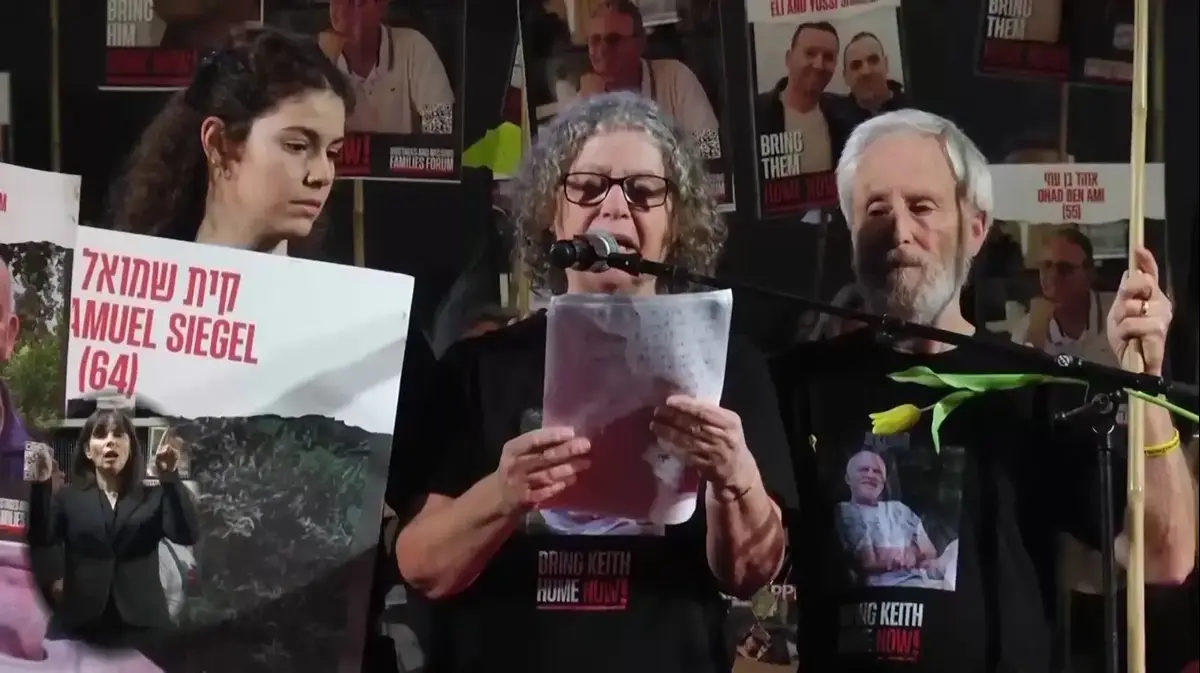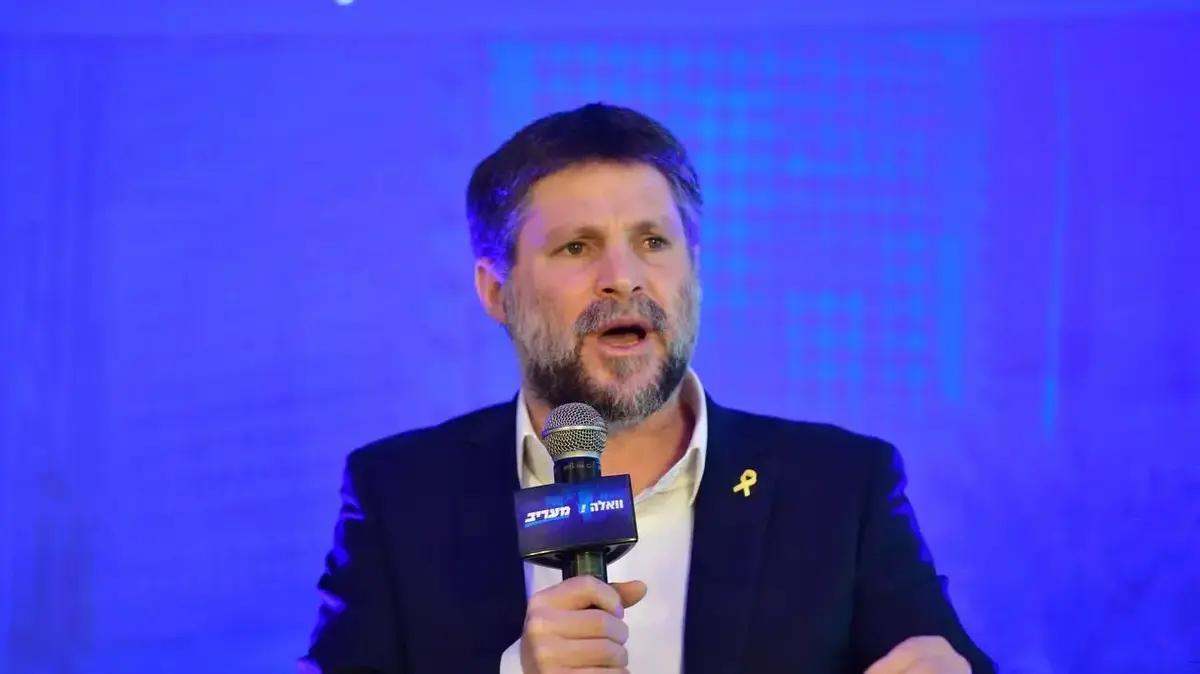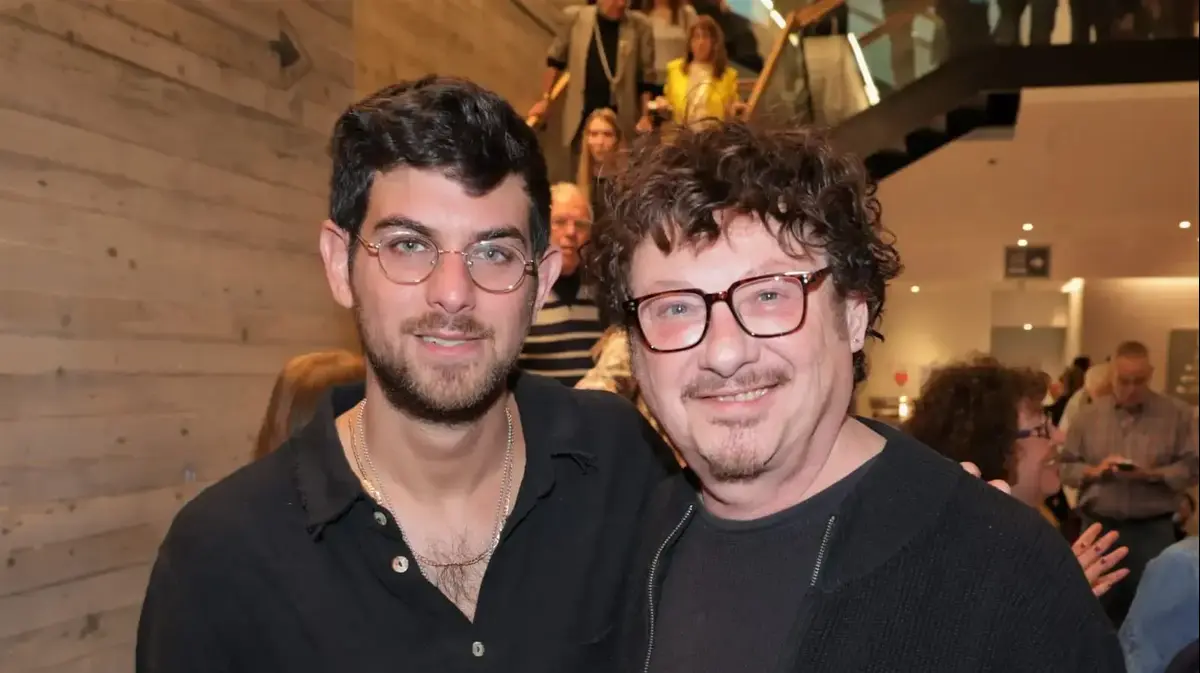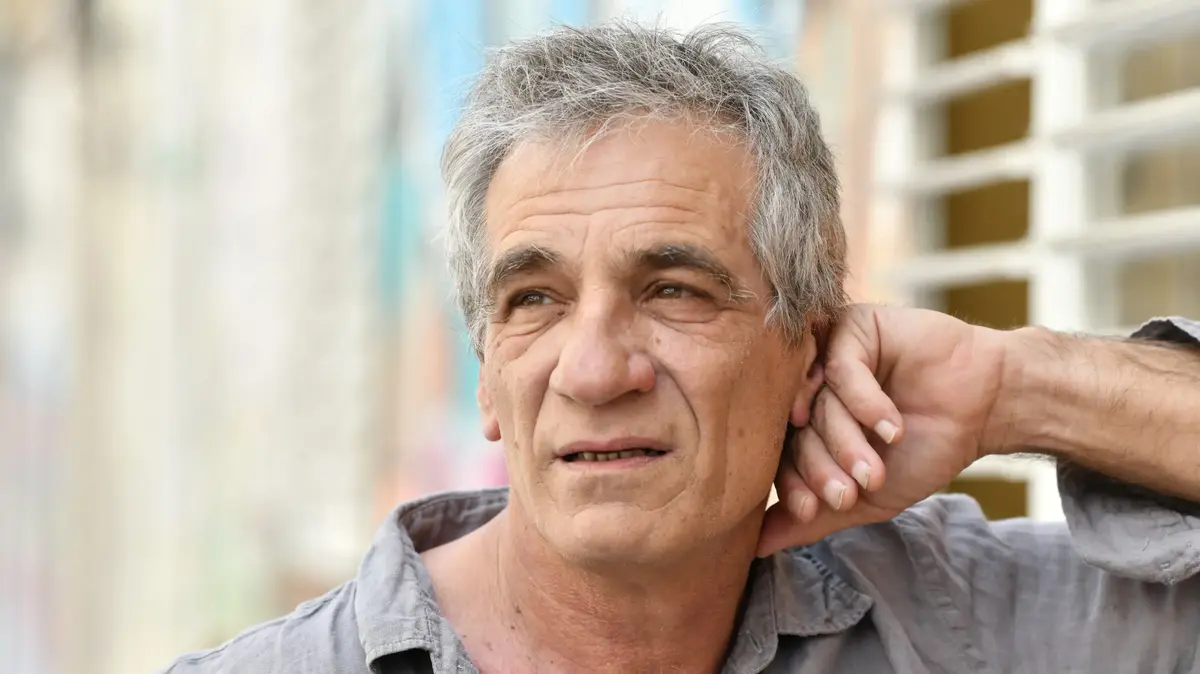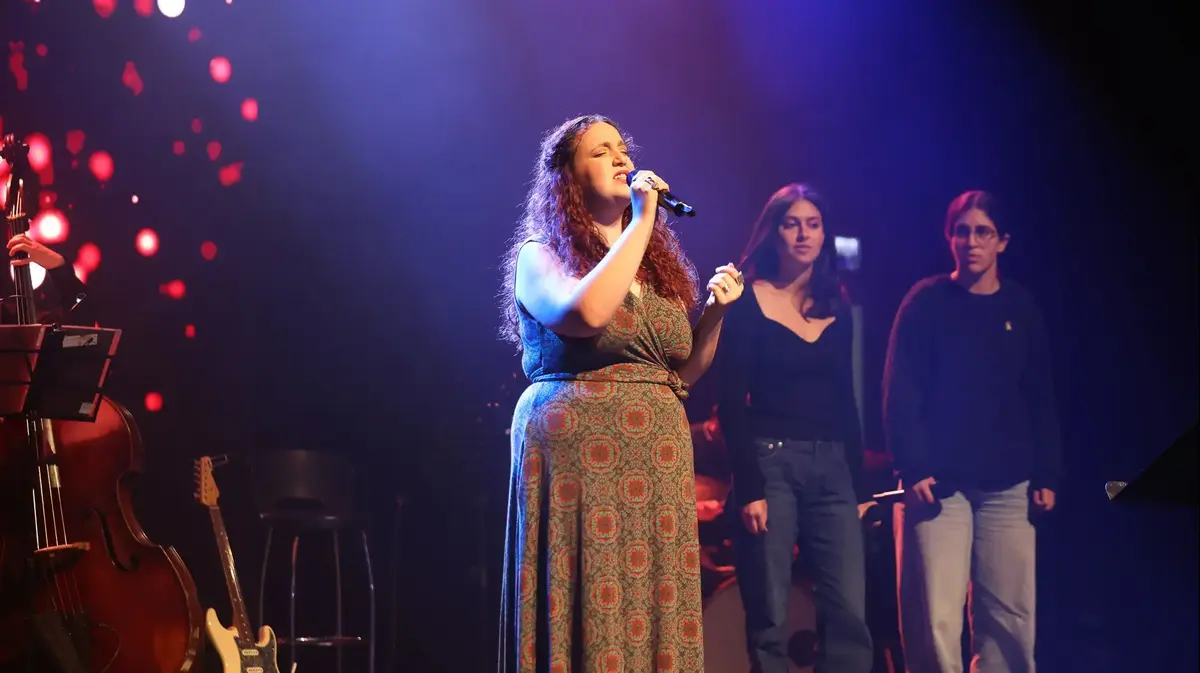A few weeks ago, the 9-and-a-half-year-old daughter of Moti Bukchin, a spokesman and volunteer at ZKA Israel, asked him if he would travel to Meron again this year, for the Lag B'Omer celebration.
He paused, then rubbed his throat, and finally replied with a sealed face: "I really do not know."
Bukchin, who during his 24 years as a volunteer at the ZKA was present at quite a few painful incidents, feels he is incapable this time.
"It's my trauma," he says.
"Since I was 13 I come to the revelry. Every year I wait for this day. But this year, when they started talking about it, I felt chills. It's a very hard feeling, that the place that led to such great elation for me for years, has become a place I do not know if I want to come at all. to his.
"This is something that has never happened to me. I have no problem riding buses, even though I saw dozens of buses explode in the 1990s. I have no problem going to the Mahane Yehuda market in Jerusalem, even though I treated the victims of the 1997 terrorist attack there. Meron ".
In the last year he has managed to reach Meron twice.
The first time was about a week after the disaster, as part of a ZAKA treatment and rehabilitation process. "I went back there with a group of volunteers, and there were very bad feelings," he says. "There was a lot of crying, a lot of outbursts of emotion.
But there was also something strengthening, sticky about it.
We sang, we cried, we all hugged, we wanted to change that awful inner feeling we had left from the inferno that was there.
A kind of vent.
But the thoughts from there do not let up. "
The second time he came to Meron on the Passover holiday.
"I decided to go to the mountain with my family, to see how I react to the place. I returned home feeling very unwell. Feelings of pain, anxiety, fear began to float in me. And it's weird. As a ZAKA man, I went through quite a few terrorist attacks.
I saw quite a few atrocities and deaths, and my heart was broken.
But here was something else.
I did not believe that in such an energetic and positive place such a great disaster could happen.
A disaster that accompanies me to this day. "
Bukchin was in Meron in his body, and his soul was still there.
Along with hundreds of rescuers, police, doctors and paramedics, he treated the dead and evacuated the wounded.
Among the crowds, there were also Rescue Union paramedic Yitzhak Sheinberger, who came with his son to celebrate the revelry, and MDA paramedic Yossi Halabi, who came to work. Three therapists with years of experience, who found themselves helpless in the face of the great disaster. The first Lag B'Omer celebration since the disaster, they return to their personal experience.
"This is closing a circle"
"Until I went through treatments and workshops, I was not able to sit and talk to you like that freely about the disaster," says Yitzhak, a paramedic from the Rescue Union.
"I would spend whole nights sleepless, in silence. With thoughts, smells, voices. Only now, after learning to express myself in writing, do I feel more open. Only now can I also say that I am really waiting for Lag B'Omer in Meron with my son, Who was also there last year.
"It's kind of closing a circle for me. I came there to pray and dance and rejoice, and I did not. Now I want to fill in the blanks. My dream is to be there at the time of lighting, take a page and a pen and write outdoors, a kind of private writing workshop for me and my son. With the tools I received. "
"The conditions in the arena were the worst they could be."
Rescue forces in Meron, Photo: AFP
He is 30 years old, from Haifa, married and a father of two.
The eldest is 9 and a half years old, the youngest is almost two years old.
For five years now, he has been volunteering for the Rescue Union as a paramedic and as an activist in the Resilience Unit, an emergency psychiatric unit that provides care to victims of anxiety, especially in the vicinity of the event, to prevent post-trauma.
For the past two years he has been working for the United Health Insurance Fund as a blood transferee.
The conversation is not easy for him.
At times he stopped and fought back tears.
At times he speaks fluently, non-stop.
It is important for him to show that such events leave a mark on those who have experienced quite a few other events in their lives, and that there are ways to deal with the fear.
This is not the first time he has experienced a traumatic event.
In 2003, when he was 12, he was standing next to the bus line 2 in Jerusalem, when terrorists blew it up.
"I remember everything that was there like it happened now," he moved restlessly.
"I saw shocking scenes that I recreate today as well. So, as a child, I did not deal with the effects of the attack. I am a hero. I am a man, I do not need help from anyone. But today I can say that I experienced trauma. To this day I have a hard time smelling meat The fire, or the smell of blood.
"That's also why I started volunteering at the Rescue Union, because I wanted to save a life. Overcoming my inner difficulty, to help others. Feeling this adrenaline, that I'm helping someone. I decided I would be the one who knows what to do on the ground, and gives the initial assistance. "When I did a lot of resuscitation in Meron. I kept thinking about how I could save, save, save."
"Need to stop it"
The disaster at the celebration of Rabbi Shimon Bar Yochai in Meron, which occurred on April 30, 2021 - Lag B'Omer last year - is considered the most serious civil disaster in the history of the country. Another 145 were injured.
In the midst of the hustle and bustle, Moti, Yitzhak and Yossi ran into the crowd, trying to save lives.
In fluent, fast-paced speech, they recall the events of that night.
In the sense of helplessness in the face of the high number of deaths.
In music that still continued to play as some people fought for their lives.
It is difficult to understand how in one moment a person dances and prays, and in the other he is no longer among the living.
Moti (42), a resident of Petah Tikva, married to Hani, his age, and the father of six children.
The eldest is 22 years old, the youngest is one year old.
He used to come to Meron to work and also to pray.
"Bezeq arrives early for the event, to organize the IDF locating the missing. Last year my daughter traveled with me, and I agreed with my wife that I would not stay and return home on the evening of Lag B'Omer.
"That evening I packed our things, and my wife kept asking if I was leaving, but I delayed. I do not know why, but I felt I wanted to pull more time, to be a little more happy, in this excitement. At midnight I got in the car and started driving. We left Moshav Meron in a slow ride , Because there were crowds of people around, and suddenly I hear on the radio 'There is a fall of a tribune in the compound, there are some casualties, their condition is unknown.
"Boom," he slams his hand on the table.
"I immediately stopped on the side, took the walkie-talkie and heard one of the drives say 'I start resuscitation.' After 20 seconds I heard another drive say 'I also start resuscitation.' And another, and another. With her to the ZAKA hotline.
I left her there and ran to the plaza.
I saw the crowd running out, and the music was still playing, because they did not know what was really going on.
I ran inside, and on the way I saw the rescue crews trying to revive people.
One and another one and another one.
"An MDA paramedic approached me and said, 'Listen, there are about ten resuscitators here.
You're a senior at the ZKA, so come with me and go see what's going on. 'And we pass one by one, accompanied by a doctor. "And we move on. Another person who died, and another one. In the eighth person I said it could not be. We need to stop it."
"I could not hear too much about the families, the funerals."
Moti Bukchin, Photo: Efrat Eshel
He closes his eyes.
To this day he remembers the phones ringing in the pockets of the dead.
Mothers, spouses, friends, who heard about the disaster and wanted to make sure their loved ones were not among the crushed.
He remembers well how on the phone screen of one of the dead he saw the caption "My dear wife," just as his wife's phone number is kept with him on the phone.
"I see that name on his monitor, and he stands up and can't move. It never happened to me that I was silent in the middle of an event. Usually I'm in 'Paul' doing. Concentrated. But here I started counting the bodies, and every moment more body and more body arrives. I arrived. To the 18 dead whose phones ring in their pockets, and it did not end, it was an illogical number of dead.
"And suddenly another volunteer yells at me from the reception hall that there are more bodies. They were covered with the curtains of the hall, which were torn off to cover them. After all, the people were rescued at the height of the pressure. It was announced that there were several other people who were forced to determine their deaths.
"We tried to get off at the nearby MDA station.
It's a half minute drop, but because of the hustle and bustle it took us maybe ten minutes.
When I got downstairs, I was approached by an ultra-Orthodox woman accompanied by several children.
She showed me a picture of her husband on camera because she had a smartphone, and I recognized his face.
He was one of the dead we evacuated.
The children shout in Yiddish 'Tati, Tati', and she asks me to tell her if I saw him, and I do not know what to do.
On the one hand I see my daughter, and on the other the woman I already know is a widow, and the children I already know are orphans, and silent.
"I went into one of the rooms at the station alone and started crying like a baby. Something that almost never happened to me in all my years at ZKA.
But I had no choice but to recover after a few minutes.
"My eldest daughter, who came to the celebration herself, took the youngest daughter with her, and I continued to help until the next day."
Can you put your finger on a particular event that particularly affected you in Meron?
"There are a lot of things sitting on me from Meron. The word 'Meron', the preoccupation with revelry, floods me all over again. I'm talking to you and I'm not quiet. My stomach turns, the sights come back, and those are difficult sights.
The angel of death does not strike, and unfortunately he works too hard.
That's why we usually try not to 'dig' too much into death.
But here we were sucked in without wanting to.
"We were left with the heavy bereavement and the bodies, and with the people who were crushed. Children, boys, adults. It did not miss anyone. I will not forget that during the incident I was called from one of the radio channels and asked how many dead there were. I thought it was hot and started counting. "One.
"Remember I said 'saved' '"
Yitzhak, a paramedic from the Rescue Union, came to Meron with his son, Tzviki, to participate in the celebration.
"Ever since I was a baby, my father has taken me to merriment in Meron, and I have also taken my son since he was a baby," he says.
"We came to pray and rejoice. We would usually go up the stairs, right where everyone was crushed. But our bus got confused, and went into a more remote parking lot, so we were ten minutes late. That's what saved us from being in that pile.
"I took with me in the basic equipment of the rescue union, and the vest. Usually I leave the equipment in the car, maybe there will be a case where I can help as a paramedic. Here I decided to put it in the bag. As I got to the stairs, The stands collapsed, I saw some guys from the Rescue Union running, I put my son in a volunteer corps and told him to wait, that I would be back soon.
I really thought it was something small, that someone had fallen or something.
He told me 'go save your life, I'll manage'.
He is a hero himself.
"Suddenly I see the cops take down the white fence on the right, and one volunteer starts resuscitation. I said to myself 'okay, this is resuscitation, not just anyone who fell.' Some talk, some conscious, some not. And the therapists start the resuscitation. One more and one more and one more.
"When one of the patients got the pulse back, I helped him get up and started pulling him. There was nowhere to step on at all, and we had to move him over the bodies. It was crazy. I treated people, and know I saved people. I have a good memory, and I remembered the faces of people I treated. Which did not appear later in the photos of the dead. "
The pain hits him even today.
The rapid flow of speech that stopped abruptly, the eyes moving agilely to all sides and the hasty hand gestures when talking over and over about the number of dead.
"A pile," Isaac defines the enormous amount of people crowded on the mountain steps.
"Did you see the videos?"
He asks.
"Because I did not. I could not. The space was enough for me."
What went through your mind in those moments?
"At first when I did the resuscitation, the music didn't stop. I felt my heart explode. I feminize and say to myself 'just live, just live.' What is he guilty of, a 12-year-old boy. Questions that do not come from a place of faith, faith has nothing to do with pain and trauma, everything is written from above, but you want to save everyone.
"I remember breathing one guy, and he suddenly opened his eyes and started talking to me. I told him they were now referring him to the hospital, and that he was rescued. I remember saying that, 'you survived,' and I was glad he came out of the piles whole."
"There was not a single drop of blood in this incident."
Meron, hours after the disaster, Photo: David Cohen - Ginny
"Nobody Input"
For almost an hour and a half, Yitzhak treated the victims of the mountain, and only then returned to look for Zviki.
"I ran to the HFK, and it turned out that they had taken him out of there to put in bodies.
They did not want him to see the difficult scenes, but they could not tell me where he was.
I went out and started screaming.
Look for him.
I was in utter helplessness.
And all the time my phone rings.
People who know me and know I am there, started asking me to look for their relatives.
They ask me where their son, husband, girl is.
And I can 't tell them what's really going on.
"In the end, I found Tzviki on the stairs near the HFK.
One woman helped him, covering his eyes with the bag, even though he had already seen what he saw.
When I saw him I burst into tears.
I fell apart.
I wanted to stay in the arena and keep helping, but other volunteers took me down the mountain.
I was told I had been there too long.
That it's not good for me to go home. "
He spent the long descent from the mountain during a phone call with his older brother who accompanied him.
"I think no one grasped the magnitude of the incident. I remember on the way down I heard people say there might be 20 dead. And I mumbled to myself 'what 20. much more. Much much more.'"
At the foot of the mountain, Yitzhak and Zvika were waiting for resilience volunteers, who wrapped them from the first moment.
He takes his cell phone out of his pocket and shows us a painting that Zviki painted as part of a treatment he received after the disaster: a building that says 'Rescue Union', with three people carrying stretchers in their hands, and people with blue heads on it.
"That's what he describes he saw. People with blue heads, and rescue workers knocking on their chests."
"We pushed ourselves forward"
Yossi Halabi, an MDA paramedic, does not remember an event on the scale of the Meron disaster. "This is the most difficult event I have encountered," he says quietly. "The helplessness, the difficult arena conditions, the amount of variables and the number of obstacles.
There is nothing you can imagine that did not happen there.
You see 30 or 40 CPRs around you, it's a scale I did not know.
"I have seen suicide bombings in which there have been dozens injured, but I have not seen such an order of magnitude."
He is 45 years old, and lives in the village of Tavor.
Married and father of three.
Has worked at MDA for 30 years, currently as a paramedic in the Operations Division and the Helicopter Unit, and heads an immediate response department. These days he is again busy preparing for the Lag B'Omer event in Meron, and hopes lessons have been learned.
"This is an event for which preparations are being made months in advance. Last year, already at noon, we performed a multi-casualty exercise in a variety of scenarios, such as a fire, a fire, a collapse of infrastructure.
Urgence was not something we thought about. "
On the day of the disaster, Yossi was at the MDA station in the compound. He remembers that hours before the incident, the congestion was felt, when MDA volunteers were called to treat a person who had suffered a cardiac arrest, and had to work their way through crowds to save him.
"A few minutes before 01:00 at night we started to hear screams and screams on the radio, about an unusual incident about people falling. We were in the clinic, something like 130 meters from the scene, but the pressure was terrible. We started moving, about ten paramedics and paramedics, because we realized something was happening there , Even though we did not know exactly what. We had to push ourselves forward, literally, turn our elbows. No one heard our cries, and if we did not use force we would not get anywhere.
"Within three minutes we found ourselves in the alley, right next to where there was a pile of people lying on top of each other, but we saw nothing. We found a man lying on the floor, two or three meters away, complaining of hand pain. We thought it was part of the incident, That hysteria is unnecessary. We went to take care of it, and after a second people started to physically pull us by the hands. They led us a few meters forward until we encountered a human barrier at the height of my chest. The bodies, people still moved legs and arms and screamed, who still managed to scream.
"From the first seconds we realized that there was a disaster here, because we saw purple people. It is something that characterizes urgent injuries, an injury caused by significant and continuous pressure on the chest. "And take care of them. I lay on the floor and started performing life-saving operations on them. People walked around me, trampling my equipment. I looked to the sides and saw people on the floor, hats, phones, personal belongings, just awful. Battlefield."
He takes a deep breath.
"I had quite a few casualties. But in this arena I just was not able to do what needed to be done at first, even though I knew what to do. I froze in place. I screamed instructions, and no one heard me. The noise was terrible, darkness, shouting, and music. Possible to treat. I did what I could, but I realized that my ability to treat and function optimally is almost non-existent. I looked at people, and some looked back at me, they were still rescuers. The faces, the purple color of their faces. .
"People around me, some inexperienced, asked me what to do, and I had to make decisions in particularly difficult moral dilemmas. Who to treat and who not. We really had to displace people from performing CPR on patients who had no chance of surviving because there were other patients who needed help. Not a simple step, to stop resuscitation in a child or young person and direct resources to people who can be rescued.
"At one point I was called to help resuscitate one of the young children, and when I saw him I said I'm sorry, this child can not be helped, he was already dead for long minutes. Children it always hurts more, these are events that throw you into your family. You say 'Oh my God, Just not children. ”When I saw the pictures of the dead in the newspaper, later, I did not recognize most of them, because their situation on the ground was not good.But I recognized the same child.
"When I finished the event I snatched an abnormal market. You feel your body, still full of adrenaline, experiencing a tremendous drop in tension, insane fatigue. The first injured from the incident evacuated within minutes and the last after an hour and a half, even though the spot was inaccessible to vehicles and conditions were very harsh. An unusual achievement. "
How were your days after the disaster?
"Immediately after the incident we continued the activity in order to return to fitness. I had to talk to the people around me, some of whom were young and inexperienced, and had never experienced a routine resuscitation event and were suddenly exposed to very difficult sights.
"Obviously I had moments of rupture. Very difficult moments, of tears in my eyes, but precisely because it is an extreme event, the message is that we must move on."
"Unlike other events, here everything happened fast, from zero to a hundred."
Yossi Halabi, Photo: Eyal Margolin - Ginny
He did not go to funerals.
"Only in a small part of the events do we form a connection with the patient. It is not routine, and in fact we try to avoid it. Some families really want it, but when you come to visit them it can take them back to bad places."
Will you come to Meron this year?
"Yes. I plan to work on the revelry, from Wednesday afternoon until Thursday. I had no hesitation at all, on the contrary. The disaster only strengthened my desire to come, because I know my contribution will be great if God forbid another event occurs."
How will this event be different?
"No one has experienced the Meron disaster, from the therapists, through the police to the celebrants, that the event will not be engraved on him during the revelry. We will all be more alert. The Meron disaster will accompany us throughout the event. It is impossible to forget that."
"I tried to disconnect"
Mutti was one of the last to remain in the arena.
"Only the day after the disaster did I drive home, alone, quietly. I also did not turn on the radio. I could not hear too much about the families, the funerals. I tried to disconnect. I also did not want to go to the synagogue in my neighborhood on Saturday night, I had no mental or physical strength, but I went .
For several nights sleep was absent from his sight.
The dead, the wounded, the amount of personal belongings left behind did not leave the eyes and mind.
As part of the attempt to deal with the pain came to comfort two of the families of the dead, but then realized that the encounter was too difficult for him.
"My righteous wife saw that it was difficult for me and asked my Rebbe to speak to me.
At first I did not want to share.
I did not want to put people in this whirlpool of emotions.
But he spoke to me, and listened, and strengthened in words of faith.
When a person believes that there are things greater than himself, he is not looking for an answer.
He understands that maybe these are people who have completed their vocation, and that calms the mind. "
Isaac also feels the pain to this day.
For the first few days he hardly spoke.
He lost his appetite, and in one week also lost seven pounds of his weight.
"You can't understand it, what was there," he closes his eyes.
"That pain you do not know how to cure. They asked me to go comfort a family whose son was killed. They wanted to hear that he did not suffer, that he died immediately. And that is what I told his mother. I told her and she cried. The family told me she did not cry from the moment "She received the news of his death, and by coming and telling her he was not suffering, I was able to release her. It helped me a little to cope. But at night I did not fall asleep, so everything was floating and rising again."
He underwent post-trauma treatment at Rambam Hospital, and spoke extensively with resilience volunteers. "The treatments I underwent helped me to continue to function, to work, to smile at people.
But at night I would lie in bed, looking at the ceiling, waiting for time to pass.
I had a big load in my heart, which grew every time I would see the difficulty of my son, Tzviki.
I did not understand why I can not move on.
I thought to myself 'come on, move on'.
But whoever was not there, can not understand how difficult it was. "
One of the ways he has found to deal with the trauma is to write.
"I would post in a closed group on the Facebook of 'Rescue Union' what I was going through, but not really what I was going through. An educational consultant in resilience, Ariel Belbes, referred me to a writing workshop by singer and creator Naama Dardik, and there I flourished.
"At the first meeting Naama told us to write an oxymoron, and I wrote the cry of silence. It's something engraved in me from Meron. That everything was chaos and screams, but you feel like you're dealing quietly. . .
"In the end, we write best about what goes on inside us," Dardick explains.
"I do not come from the therapeutic field, but I grew up in Kiryat Arba, which has known quite a few terrorist attacks and bereavement, and I know that writing helps to process experiences and flood emotions. I teach people to express themselves more accurately and describe what goes on in their minds. To bring writing to life. "
"Writing helps."
Naama Dardik, Photo: Naama Rothschild
"What really happened here?"
Yitzhak, Moti and Yossi have seen quite a few disasters in their lives, and have treated quite a few injured.
But something in Meron, they explain, affected them differently, more powerfully, than any other event.
"One of the defense mechanisms that the mind and psyche build is to find the motive for the disaster," Mutti explains.
"When there is an attack, you deal with the atrocities and explain to yourself that there was a terrorist here who wanted to hit, destroy. When you get to the scene of an accident, you realize that someone did not drive carefully, even if not intentionally. But in the Meron disaster I treated the dead, ? '
And to this day I can not understand what happened.
"People were at a happy event, dancing and singing, and a moment later were killed for nothing. For nothing. What added to the pain here was that I was part of the event itself. We are usually called to get to the event. We have time to go to the arena, time to digest. But I was in Meron, I was at the height of the dance just before everything collapsed. "
יוסי: "בניגוד לאירועים אחרים, כאן הכל קרה מהר, מאפס למאה. ממצב של טיפול באירוע שגרה, עברנו בתוך פרק זמן קצר מאוד לקטסטרופה. בדרך כלל באירוע רב־נפגעים אתה מקבל בדרך דיווחים והסברים, ובתת־מודע שלך אתה מתכונן למה שמתרחש. כאן הבנו שקורה משהו, בלי מידע קונקרטי, ובתוך שניות היינו בתוך אסון.
"גם כשהתחלנו לטפל בנפגעים לא ידענו בהתחלה מה גרם להם להגיע למצב הזה. צעקו לנו שהם נפלו למעלה, שקרסה טריבונה, כל מיני דברים. לא היינו מוכנים לאופי הפציעות, פציעות מעיכה וחנק, שהוא נדיר מאוד. בדרך כלל באירועים רבי נפגעים אתה מצפה לראות דם, ובאירוע הזה לא היתה טיפת דם אחת".
יצחק: "כשאתה יודע שיש מפגע, אתה יודע שהאירוע נגמר. שפינית את הפצועים למקום בטוח, וזהו. אבל כאן היה אירוע מתמשך, ואנשים מתו תוך כדי. עד שהשוטרים הגיעו והורידו את הגדרות עם הידיים. אין על הכוח של השוטרים באותו יום".
האסון השפיע עליכם מקצועית?
יוסי: "כאנשי מד"א אנחנו חווים אירועים קשים כל יום, זו השגרה שלנו. אלו אירועים שמלווים אותנו. אבל מירון הוא אירוע שילווה אותי תמיד, שלעולם לא אשכח אותו, עד הפרט האחרון. אני זוכר את עצמי שוכב על הרצפה בשניות הראשונות, מנסה לבצע אינטובציה בפצוע שהחלטתי להחיות אותו, מסתכל ימינה ושמאלה ורואה סביבי קטסטרופה.
"אין ספק שאסון מירון זה משהו שאתה סוחב איתך קדימה, חד וחלק. אני לא חושב שיש מישהו שהיה שם ושלא סוחב איתו תמונות וקולות משם ברמה יומיומית. אין יום שלא קופץ לי משהו מהאסון. אבל חשוב לי לספר על מה שעברתי, גם כדרך התמודדות וגם כדי ללמד אחרים. שאנשים יבינו מה היה שם, שיידעו למנוע את זה או לטפל באירוע כזה בעת הצורך".
Mutti: "If I delve into any attack, I will not be able to deal with people in the next situation. I will not be able to go out and volunteer. But we are also human beings, with body and soul and family, who leave their lives to mess with the hardest thing, and return to wife and children and work the next day. "After my daughter asked me if I would go to the party this year, I asked her if she would like to come. After all, she was also there, in the disaster. She did not answer."
batchene@gmail.com
Were we wrong?
Fixed!
If you found an error in the article, we'll be happy for you to share it with us

